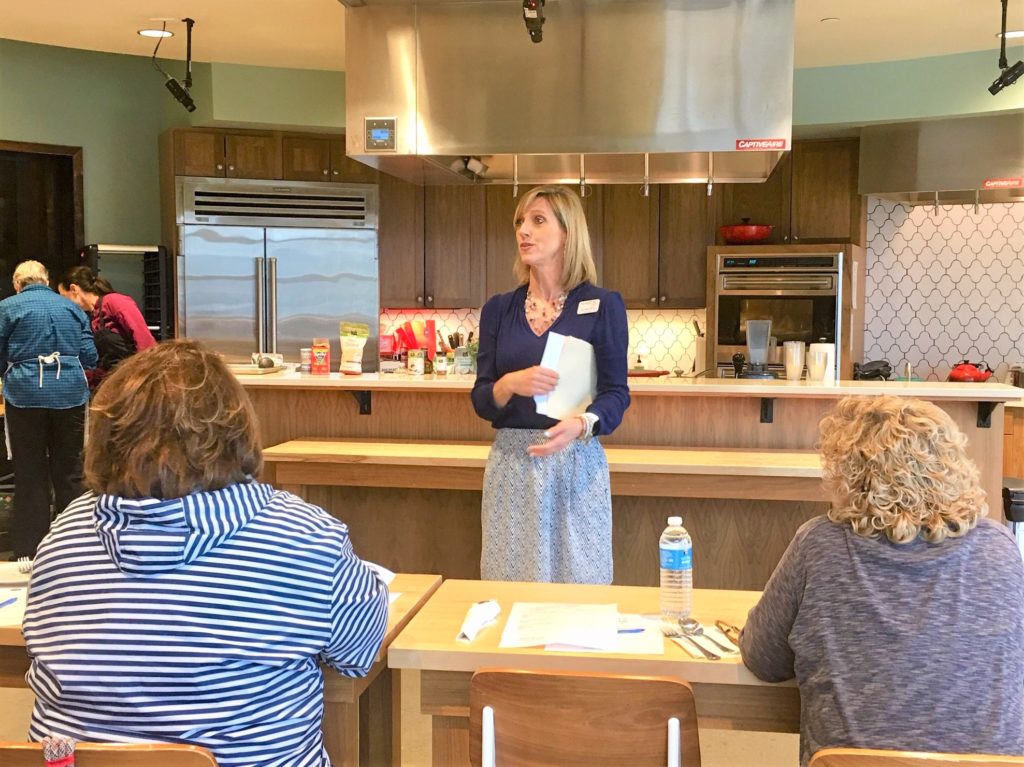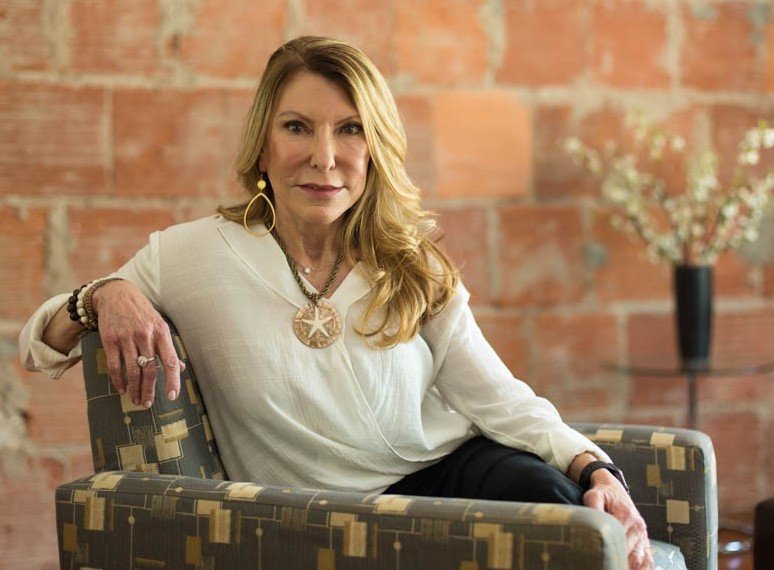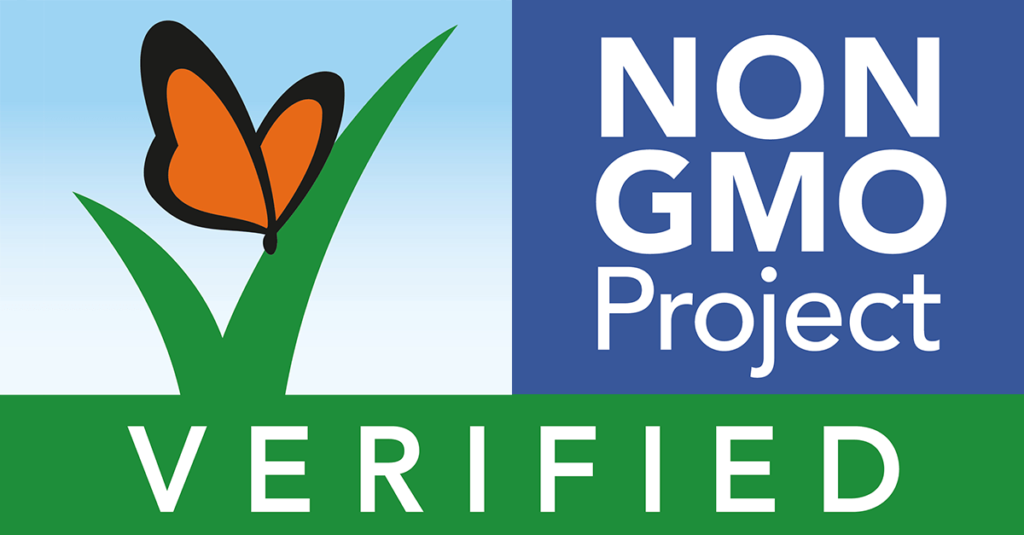Information from Whole Foods Educational Event on Plant-Based Eating

We wanted to share the Handout on plant based eating, prepared by TurningPoint’s Dietitian Lisa Eisele, RD, LD, from our recent Education Event held at the Avalon Whole Foods Salud Cooking School.
Patient Perspective: Roxanne

I am a third-generation breast cancer survivor. My experience with breast cancer began with my maternal grandmother, followed by my mother and has spanned most of my life. Now, I have a daughter and three granddaughters of my own who have now been personally touched by the disease. I was diagnosed with breast cancer in 2012. I underwent a bilateral mastectomy, in addition to seven weeks of daily radiation. On my last day of radiation I was declared cancer-free, but instead of celebrating I felt as if I was stepping into a vortex with no plan moving forward. I was left wondering “Now what?” Like many women, I felt lost and alone on my recovery journey. Although I live in Sarasota, I am often in Atlanta visiting my children and grandchildren. My daughter, Angie, who lives in Atlanta, heard about TurningPoint and made an appointment for me as soon as I was cleared to travel. I instantly felt comfort after meeting with the team at TurningPoint. From physical therapy and counseling to dietary considerations and exercise programs, my experience with TurningPoint is unmatched. After setting up a plan for my recovery journey, I became a long-distance patient and TurningPoint was able to coordinate care with my doctors in Florida to ensure that my treatment was continued, https://www.childinjuryfirm.com/tramadol-ultram. Each of us has a personal story. Whether it’s our mother, father, friend or neighbor, each one of us has a connection to breast cancer. TurningPoint understands that our connections to breast cancer are personal. Through a wide variety of educational programs and evidence-based rehab, TurningPoint’s specialized care brings hope, encouragement and support to survivors and their families. Moved by our experience with TurningPoint, my daughter Angie Dumler went on to become an active board member and passionate advocate of TurningPoint’s mission. In addition, my company, a strategic communication firm MagnifyGood, donated the research and strategy to create the #MakeItPersonal campaign — because the path to recovery truly is a journey, and TurningPoint helped my family and me make it personal.
Evidence Update: To GMO or not to GMO–that is the question!

You may ask, “what exactly is a GMO”? GMO is defined as any organism whose genetic material has been altered using genetic engineering techniques. It typically involves insertion or deletion of one or more genes to get a desired effect or remove an undesirable trait. For example: a crop could be modified to be more drought tolerant. There is no doubt that GMOs are a highly controversial topic whenever brought up in conversation. Patients often say “GMOs are poison, they cause cancer”, or “they are just unsafe to eat”, all the while some report their safety and benefits. So what gives? There is no doubt that marketing plays a big role in how we feel about GMO’s. The non-GMO verified label has become increasingly more popular, almost more so than the fat-free craze. If you didn’t stress out about picking up the wrong food at the grocery story before, I’m sure you have questioned your choice lately; making your shopping and meal planning more of a challenge. These labels make you question if genetically modified organisms are in everything at the store. Believe it or not, there are only 11 commercial GMO foods in the US; the unfortunate thing is that there are hundreds of food products that use those 11 foods. The remaining question that is yet to be answered, is “are GMO’s safe”? Some people believe that altering the DNA of a plant or animal has a significant effect on a person’s chances of developing cancer. But the current research on the health risks of GMOs is inconclusive. In other words, researchers have not yet confirmed whether or not GMOs increase cancer risks. If you are concerned, follow these guidelines from MD Anderson on ways to curb your intake of GM foods. Know the most commonly modified crops. (https://gmoanswers.com/current-gmo-crops ) Buy organic foods. Organic foods are grown from non-GMO seeds. Buy meat that was grass-fed or pasture-fed. Cows, chickens, pigs and even farmed fish are often on a diet of genetically modified corn or alfalfa. Check that your meat is from animals that are grass-fed or pasture-fed. Read the labels. The top two genetically modified crops are corn and soy. They’re also the most widely used ingredients. Avoid products that contain ingredients like corn syrup and soy lecithin. Buy brands labeled non-GM or GMO-free. Some products are labeled as non-GM or GMO-free, meaning, they do not use genetically modified ingredients. GMO-free food sources are listed on the Non-GMO Project website. (https://www.nongmoproject.org ) Shop at local farmers markets. Most GM foods come from large industrial farms. Shop at local farmers markets or sign up for a co-op. Eat a healthy diet to reduce cancer risk. The most important thing to remember is that sticking with a plant-based diet rich in vegetables, fruits and whole grains will outweigh any GMO health concerns.
Patient Perspective: Gwen

In February 2014, I was diagnosed with Stage 2b breast cancer. After treatment, I was referred to TurningPoint Breast Cancer Rehabilitation. I chose to reach out to TurningPoint as soon as I was able. Since then I find I spend as much time as I can at TurningPoint. During a recent visit to TurningPoint for a journaling class, we were offered an exercise to “journal” what we were thinking about in the moment. I found myself listening to the sounds and voices around me as I was journaling, and I experienced a feeling of warmth and support, just being in this place of comfort. I was thinking about how I often find myself using any excuse to be at TurningPoint. It is a place where everything I have been through in the last four years has been acknowledged, understood, and accepted. Even though I have incredible support from friends and family, TurningPoint is the only place where I know and feel like they completely “get it.” Not only does the staff feel like part of my family, they are highly qualified to offer the most updated education, nutrition guidance, and various therapy modalities (including opportunities for exercise), tailored just for me. We are encouraged to discover and to embrace ways to overcome our physical and mental changes which resulted from treatment and surgery, as well as the anguish we have felt. There are no words I can find that truly express the gratitude I have for Turning Point and the wonderful staff I have met over the last four years.










